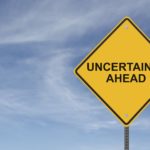Blog
STEAM – The welcome return of the Arts
The role of the manager and leader is fundamentally in maximising different skills sets and experiences
We have been told over the last number of years about the importance of STEM (Science, Technology, Engineering and Maths) and how these subjects will drive our attractiveness as an economy and the success of indigenous and FDI companies. There has been a drive to get such subjects in a position where they are more attractive to and popular with our students. This may have been welcome to help us broaden the options and opportunities for our second and third level students but it came with a price. We decided that these skills were more important and relevant than the Arts and Humanities. In my view they may have been complimentary to but were never superior to.
We need to develop respect for the diverse range of skill sets that organisations do need and also respect what is often inherent conflict between these skills sets. We have conflict between manufacturing costs and quality, between operations and procurement, between marketing and finance etc. As we educate people in silos so we create the conditions for working in silos and lessening understanding, cooperation, cross-functional activity and adaptability; the very skills we are saying companies need in this new economy.
The potential downside of the focus on STEM is not just the idea that in some cases we are teaching the very skills that will be overtaken by technology, the absorption of information, calculations and analysis in certain circumstances. As Jack Ma said recently at Davos we should not be teaching our kids the very tasks that technology will undertake. The downside is that we do not teach people to be comfortable with uncertainty and contradiction.
The strength of the Arts is fundamentally the ability to hold conflicting ideas as equally valid and impactful. The classic “Why?” and “Why Not?” in philosophy or the arguments over which specific events triggered the First or Second World Wars allow students to accept doubt, what ifs and uncertainty as they attempt to rationalise what happened next or predict what will follow.
The role of the leader and manager is increasingly in managing diverse range of skill sets, experiences, world views and cultures within an organisation. It is not be an expert in all these areas but to respect the diverse expertise and experiences; to be able to access and harness these skills and, importantly, enable them to exchange and where appropriate to transform and create
Self Awareness is the key to our role as leaders. It is in our ability to understand where our own biases and comfort zones are; which skill sets and outlook we naturally support and value above others that our true value lies. When we can be objective we can be supportive and respectful and build communication and co-operation between the diverse skills around the table.
We can look at what is required now to deal with the immediate challenge and whether it is in keeping with long terms goals and, importantly, values. We can do it in a way that includes and motivates all rather than leave them feel isolated and ignored. In behaving this way we tap into all the skills and energy around us.
When we know ourselves we become comfortable with uncertainty and learn to harness it. When we try to bend everything to a world view or behaviour we do not even acknowledge we limit ourselves.
We do not need more skill sets; we need values as leaders. If we wish to enable the behaviour identified we need to build on the self-awareness. We need to accept that we may learn in each and every conversation, that we may not be the only person who is right, that others have valid points of view and opinions that are real to them. To do this and be this we need to behave in a way that is curious, respectful, humble and open.
When we are truly respectful, humble, curious and interested in others we will behave that way. These values are what we should look for, encourage and develop in ourselves and others.
If you are interested in learning more about this look at our blog on The Power of Uncertainty or contact us at [email protected]




